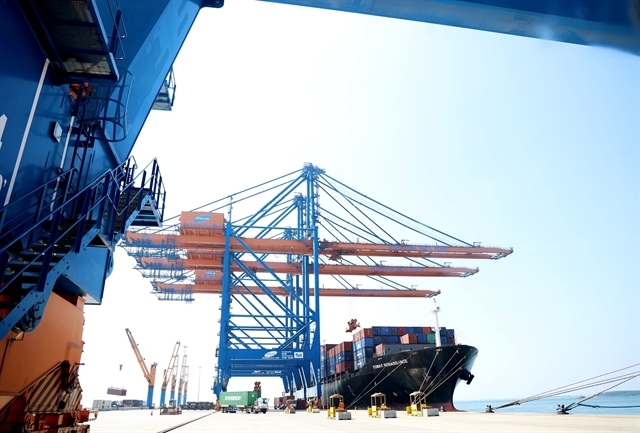US farm produce to Vietnam will rise with import tariff cut
A wide range of US agricultural products will soon enter the Vietnamese market at more competitive prices, following a significant reduction in import tariffs which took effect on March 31, 2025.
Under Decree No. 73/2025/NĐ-CP, issued by the Government, Vietnam lowered import duties on various essential goods – chiefly agricultural products, automobiles, and input materials for key industries.
The Ministry of Finance confirmed that the adjustment reflects Vietnam’s strategy to promote trade liberalisation with key partners, especially the United States, and support domestic consumption.
Accordingly, the tariff cut is from 20% to 15% for frozen chicken thighs, while the import tax drops from a range of 8-12% to 5% for unshelled pistachios, almonds, fresh apples, cherries and raisins.
The import tariffs of corn for animal feed and soybean meal are reduced from 1-2% to zero.
The reduction is expected to enhance consumer access to imported goods and reduce input costs for sectors such as livestock farming, which relies heavily on imported corn and soybean by-products.
The decree also applies to non-agricultural goods. Notable changes include cars with codes of HS 8703.23.63 and 8703.23.57 having a tariff cut from 64% to 50%, and autos with HS 8703.24.51 code enjoying new rate dropping from 45% to 32%.
The import tariffs also slide from 10% to 5% for ethanol and from 5% to 2% for liquefied natural gas (LNG).
Notably, the tariffs drop to zero from 20-25% for wood products under 44.21, 94.01 and 94.03 groups.
The US is one of the major suppliers of agricultural goods to Vietnam. In 2024, the exports of US agricultural products, primarily cotton, soybeans and tree nuts, reached US$3.4 billion, accounting for over a quarter of total US exports to Vietnam.
According to economist Dinh Trong Thinh, the tariff cuts will stimulate import turnover and give consumers more affordable options. Essential goods will reach the consumers more quickly and at better prices.
The livestock sector, in particular, stands to benefit from the 0% tax on corn imports. Vietnam currently imports nearly all corn volume for animal feed, with a value of US$3.04 billion in 2024 - a 6.1% rise from 2023.
Meanwhile, according to US fruit exporters, despite growing demand in Vietnam for products such as apples, grapes, cherries and oranges, the high tariffs have limited their market access in this Asian country.
In 2024, Vietnam imported nearly US$550 million worth of US fruits and vegetables, a 64% increase from the previous year.
At present, Vietnam and the US are also negotiating to open the market to more American fruits, including tangerines, lemons and plums.
The tariff reductions come amid efforts to address trade imbalances. Experts say the policy will help diversify Vietnam’s import goods and enhance its trade relationship with the US.




